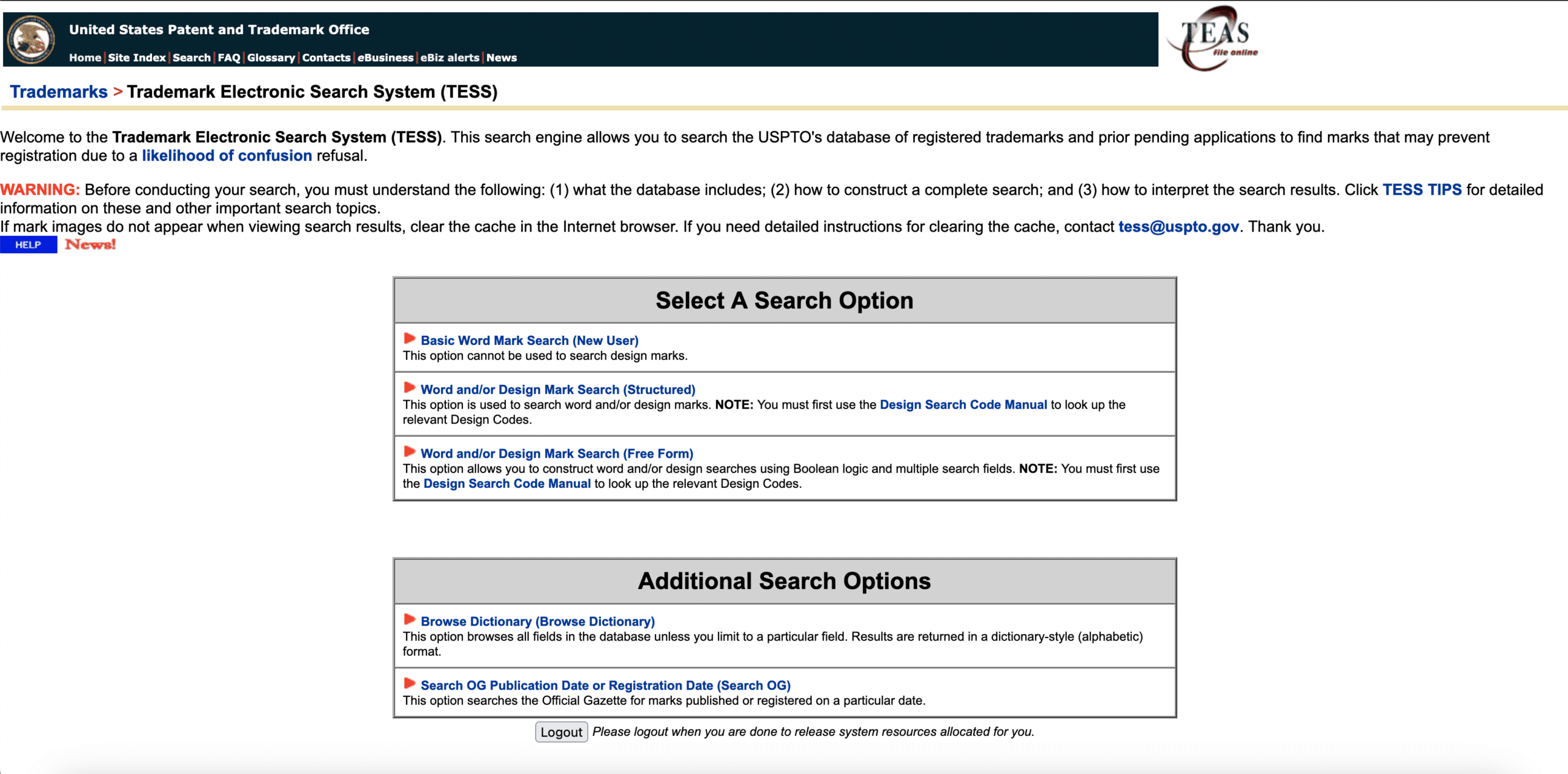When your business is creating a new trademark, before beginning use, you must ensure that your trademark is not already being used AND that your proposed trademark is not “confusingly similar” to a trademark already in use. Why? First, if you use another company’s trademark without permission, you engage in trademark infringement. Your business will be sued, and the potential monetary damages are high. Second, if you are creating a new trademark, you must register your new trademark with the US Patent & Trademark Office (“USPTO”) to maximize the legal protections for the new trademark. But uniqueness is one eligibility requirement for registration. That is, if your new trademark is already in use or confusingly similar to one, then the USPTO will deny your application for registration.
So, early in the process of creating a trademark, it is necessary to engage in a “trademark clearance search.” In general terms, a trademark clearance search uses public and private databases — here in the U.S. and abroad — to ensure that a proposed trademark is not already in use. Trademark clearance searches are best done by experienced trademark attorneys like the ones at Revision Legal. If you have been searching the internet for the “best trademark lawyers near me,” call us at 231-714-0100 or 855-473-8474. We have top-tier trademark attorneys that have the inside track on trademark clearance searches.
What is a Trademark TESS Search?
A TESS trademark search is an essential part of a broader trademark clearance search. TESS is an acronym meaning the “Trademark Electronic Search System.” TESS is a database run by the USPTO that includes every registered U.S. trademark and every trademark that has been applied for. Importantly, the TESS database allows searches not only for the word or phrase elements of a trademark but also for the design and structure elements. Trademarks usually contain several elements, and a registered trademark clearance search will compare and contrast all of the elements to ensure that a proposed trademark is unique.
In addition, a TESS search will identify the class and subclass of goods and services with which existing trademarks are associated. Knowing the trademark class is essential in evaluating whether a proposed trademark is “confusingly similar.” The same design element — such as a word or phrase — can be used without causing confusion if the goods and services being provided are very different. Consider the word DELTA as a trademark element. In the marketplace, one can buy plane tickets for DELTA AIRLINES and buy plumbing hardware from DELTA FAUCETS. The word DELTA is not confusing to distinct groups of consumers because the services and products are very different. Unlike other types of trademark searches, a TESS search will provide information on the trademark class and subclass.
As noted, the TESS database also contains proposed trademarks in current applications and also in applications that have been denied. The former is important since a proposed trademark may not be currently in use. This means that some other proposed trademarks will not be uncovered with other types of searches. Likewise, the TESS database will contain information on trademark applications that were rejected and also on registered trademarks that have expired or that have been abandoned.
Contact the Trademark Attorneys at Revision Legal
For more information, contact the experienced Trademark Lawyers at Revision Legal. You can contact us through the form on this page or call (855) 473-8474.




